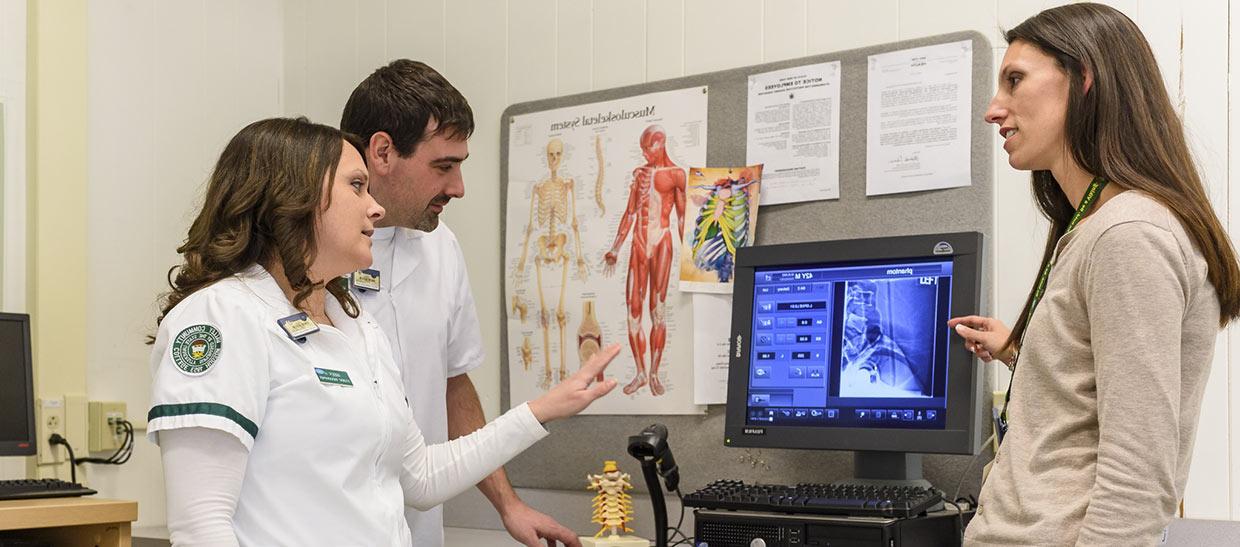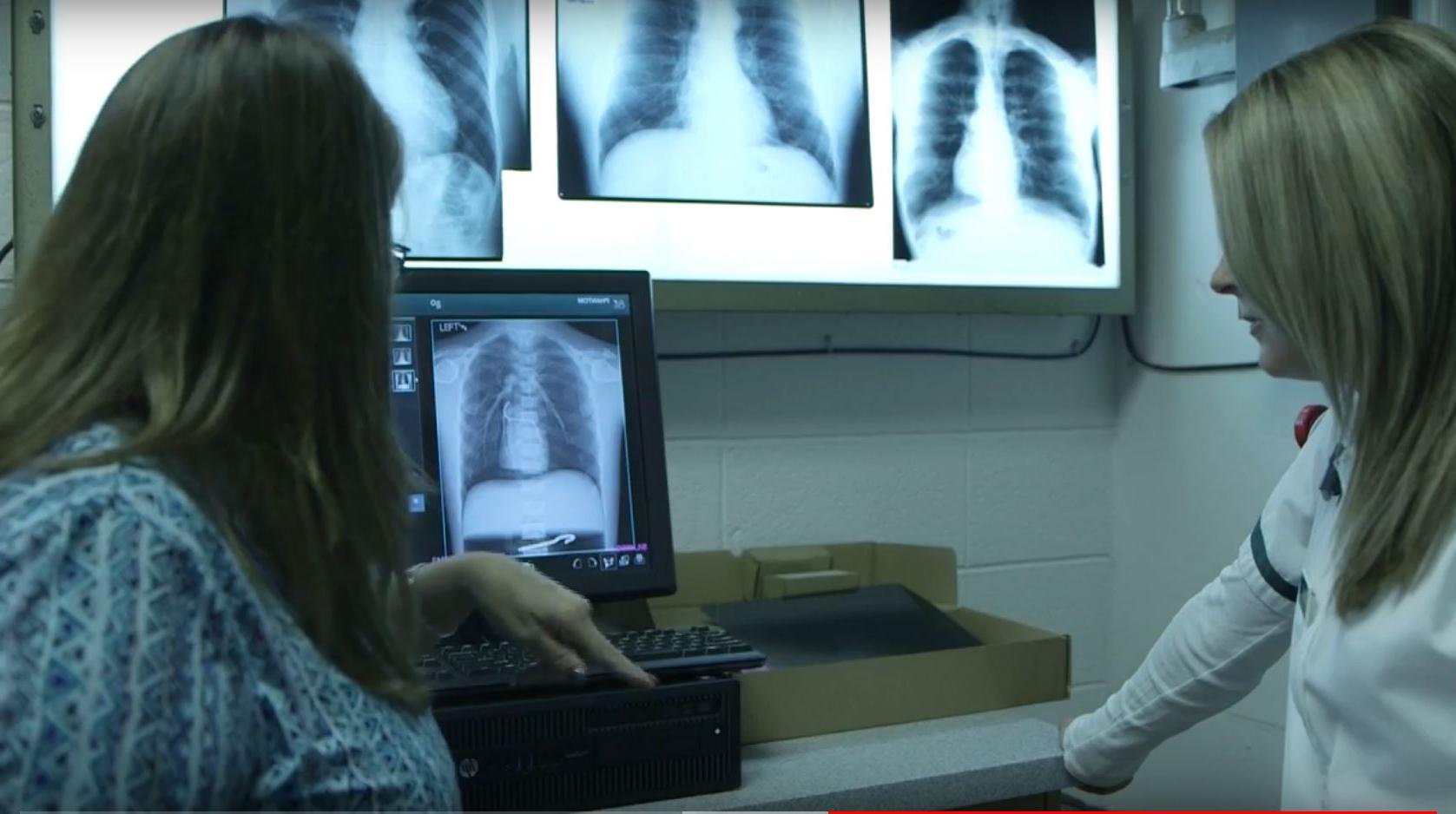Radiologic technologists, also called X-ray technologists, perform diagnostic imaging examinations, such as X-rays, on patients. This degree prepares you to become a highly trained specialist with a full understanding of the principles of the diagnostic uses of radiation.
After successful completion of the program, licensing by the New York State Department of Health and certification by the American Registry of Radiologic Technologist can be obtained. Graduates may continue their education in the Diagnostic Medical Sonography and Diagnostic Cardiac Sonography certificate programs.
This academic program is primarily designed for those who wish to enter the workforce immediately following graduation. Some graduates also transfer to four-year colleges and universities to complete a bachelor’s degree.
This program is offered by the Medical Imaging Department.
[Loading Program Requirements link…] Program Learning Outcomes
Take Note
- This is a competitive program; it is likely that some students will be placed on a wait list, while others will be advised to consider another curriculum or reapply for a future semester. A published set of Guidelines for Selective Admission highlight the criteria used to evaluate candidates.
- All applicants accepted into the Radiologic Technology program must be able to meet the program's technical standards as outlined in the Technical Standards Policy.
- The mission, learning outcomes and goals outline the technical competencies all graduates should receive.
- Part-time study is not available in this curriculum.
- "C" grades must be achieved in all Radiologic Technology core courses for continuation in the program.
- Conviction of a felony may affect an individual's ability to be a registered and licensed Radiologic Technologist.
- Due to radiation exposure associated with the program, a pregnant student should contact the Department Chairperson immediately after this diagnosis. Pregnancy may prevent the student from participating in clinical education courses.
- Prior to starting the program, students may be subjected to drug testing and criminal background checks at their own expense. Results must be shared with the Department Chairperson and clinical education site. If the clinical site deems the student unfit to attend the site, the student may be unable to complete degree requirements.
- Clinical site placement is assigned based on geographic location. The program makes every effort to limit travel to clinical site locations to 60 minutes or less. Students are responsible for finding their own transportation to the clinical facility.
- Clinical rotation times are assigned at the discretion of the clinical site. Certain rotations may require the student begin their day as early as 6 a.m. or as late as 11 a.m.
Radiologic Technologist
Explore Related Careers
NOTE: Additional educational requirements and/or certifications may be needed for some careers.

Get in Touch
Department or program information:
Summer Office Hours: Monday - Friday, 8 a.m. - 4 p.m.

